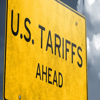Insights
Investment-Einblicke von unseren Experten und Vordenkern
Global Investment Committee’s outlook: narrowing growth differentials (Englisch)
by , — 27 June, 2025
The GIC assesses that the probability of slower yet positive growth in the US has increased. The GIC anticipates a narrower growth gap between the US and other developed markets, with selective
diversification into European and Chinese equities potentially paying off. The GIC believes that the risk premium offered by Japanese equities is now competitive with that of the US, although
trade-related uncertainty is expected to linger.
Balancing Act Monthly Insights: Global Multi-Asset (June 2025)(Englisch)
by — 26 June, 2025
US exceptionalism has faded from view recently, supporting an exodus from US assets. However, our stance remains that the US is core to our investment thesis, allowing us to remain part of the secular
growth trend in technology innovation not found elsewhere in the world.
We continue to believe that Asia's local government bonds are positioned to perform decently, supported by accommodative central banks amid an environment of benign inflation and moderating growth.
FOMC: projections highlight heightened uncertainty in rate outlook (Englisch)
by , — 20 June, 2025
The Fed maintained interest rates at its June meeting, signalling a slightly more positive economic outlook. Despite easing of some risks, uncertainties remain elevated, with inflation still a key
concern. FOMC members' varied rate projections reflect heightened uncertainty in the economic outlook.
Strategic shift in Japanese equities: uncovering takeover triggers (Englisch)
by , — 20 June, 2025
Japan's corporate governance landscape is continuing to evolve, highlighted by increases in shareholder activism and unsolicited takeover offers. The reforms initiated over the past decade have led to
a more open corporate climate, and there is a shift towards a more competitive and value-driven market environment in Japan.
New Zealand Equity Monthly (May 2025)(Englisch)
by , — 11 June, 2025
New Zealand’s climate-related disclosures regime came into effect for reporting periods beginning on or after 1 January 2023 and the first rounds of annual reports were released in 2024. Now that the second year of reporting is underway, we share some of the benefits and challenges we have found in the reporting process.
New Zealand Fixed Income Monthly (May 2025)(Englisch)
by , — 10 June, 2025
The RBNZ's interest rate cut in May was viewed as a hawkish reduction, with the central bank seen moving closer to the point at which it will consider pausing the cycle to observe the benefits the
current monetary policy settings can bring to the economy.
Harnessing Change-Monthly Insights: Asian Equity (May 2025)(Englisch)
by — 10 June, 2025
Markets, while volatile, have continued to recover, and we are now seeing an easing of trade tensions. However, in these uncertain times, one thing remains clear—uncertainty itself. The situation
remains fluid, and against such a background we expect Chinese policy support to stimulate consumption and business activities.
Japan plays the long game to keep structural recovery intact (Englisch)
by , — 09 June, 2025
Japanese equities have not been immune to tariff worries. However, it is worth remembering that Japan is playing the long game: the country is undergoing structural reflation driven by factors
unlikely to be reversed by market volatility or bad news on US trade.
Navigating Japan Equities: Monthly Insights From Tokyo (June 2025)(Englisch)
by , — 06 June, 2025
We discuss how growing calls to reduce Japan's consumption tax rate provide a chance to focus on how consumption can be stimulated, potentially triggering a secular change in spending behaviour; we
also assess the recent surge in super-long JGB yields and its possible implications for monetary and fiscal policy.
The reckoning of ESG: turning the backlash into opportunity (Englisch)
by , — 04 June, 2025
The backlash against ESG should be seen not as a setback but as a catalyst for progress. By embracing Rational Sustainability and focusing on financial materiality, asset managers can enhance their
investment strategies, fulfil their fiduciary duties, and meet the evolving expectations of their clients.
Balancing Act Monthly Insights: Global Multi-Asset (May 2025)(Englisch)
by — 29 May, 2025
In this month's Balancing Act we review Q1 corporate earnings, which have been more resilient than expected; from a defensive standpoint we also discuss our cautious view on gold.
Against a more challenging but still benign macroeconomic backdrop, we expect Asian corporate and bank credit fundamentals to stay resilient, aside from a few sectors and specific credits which may be
affected by tariff threats or geopolitical dynamics.
Harnessing Change-Monthly Insights: Asian Equity (April 2025)(Englisch)
by — 21 May, 2025
We can expect more aggressive policy support from Chinese authorities over the next several months for consumption and business activities, prompted by the still uncertain global trade situation.
Despite the ongoing volatility and uncertainty surrounding US-China tariff policies, there are encouraging signs that the situation may improve.
We are all Bayesians now: why the US bond market is pivotal (Englisch)
by , — 20 May, 2025
Moody's downgrade of the US offers a chance to assess the relationship between the US administration and the bond market and examine the implications of persistent budget deficits, market reactions,
trade tensions and policy decisions.
Active investing: insights from nearly 40 years of experience (Englisch)
by , — 19 May, 2025
Our belief is that there are three key ingredients of success that active managers should deliver to make outperformance more likely: culture, philosophical path and process design.
Global Equity Quarterly (Q1 2025)(Englisch)
by — 16 May, 2025
We firmly believe that markets remain inefficient, and the last few months are testament to that. Hence we face today's uncertainty level headed, attentive to where risks lie while also inquisitive
about the potential opportunities.
Balancing Act: Global Multi-Asset Quarterly (Q1 2025)(Englisch)
by — 15 May, 2025
Speculation over the actions of the US administration had a major impact on asset markets throughout the January-March quarter, with volatility dominating towards the end. We trimmed our overweight
score in growth assets during the quarter, while we kept our view of defensive assets marginally positive.
New Zealand Equity Monthly (April 2025)(Englisch)
by , — 14 May, 2025
The upcoming New Zealand earnings reporting season is set against a backdrop of intricate global economic factors and trade tensions. Amidst the uncertainty, we assess New Zealand's exposure to the global trade tumult, highlighting potential challenges and supportive factors for the country's economy and companies.
New Zealand Fixed Income Monthly (April 2025)(Englisch)
by , — 13 May, 2025
In our view, New Zealand’s status as a safe haven during times of turbulence has often exceeded that of other markets. Although the New Zealand market is relatively small, it also offers a high degree of quality, and the country's bond and asset prices rarely see as much volatility as in the rest of the world.
Trump’s first 100 days: a new economic regime takes shape (Englisch)
by , — 12 May, 2025
With a new economic regime potentially taking shape, we believe that now is an opportune time to consider an active global fixed income approach to navigate what is likely to be a prolonged period of
uncertainty.
Navigating Japan Equities: Monthly Insights From Tokyo (May 2025)(Englisch)
by , — 09 May, 2025
While the “tariff crisis” may have clouded Japan’s economic outlook, the prospects are certainly not opaque as it may look to reduce the role of US exports. Trade tensions have also prompted the Bank
of Japan to hold monetary policy steady, but the central bank is still seen to be on course to hike interest rates in the longer term as it takes into account the continuous rise in domestic
inflation.
Balancing Act Monthly Insights: Global Multi-Asset (April 2025)(Englisch)
by — 30 April, 2025
One major “plotline” central to the recent series of tariff moves is the tense trade relationship between the US and China. In this issue, we will explore how Chinese bonds have historically offered defensive characteristics and their portfolio roles moving forward.
Financing nature at scale (Englisch)
by , — 24 April, 2025
Nature-related risks and opportunities are rising fast on the global investment agenda. Yet for many investors, finding scalable, credible ways to finance biodiversity remains a challenge. Sovereign green bonds may offer one of the most effective channels to direct capital toward nature-positive outcomes—at scale, and with transparency.
Harnessing Change-Monthly Insights: Asian Equity (March 2025)(Englisch)
by — 18 April, 2025
China’s focus on boosting domestic consumption as their top policy priority in 2025 sets a positive trajectory. The ability of individual countries to provide domestic stimulus is going to be crucial
in limiting the impact of global growth slowdown brought on by US policy uncertainty.
The Global Investment Committee (GIC) held an extraordinary session to review the macroeconomic and market impact of tariffs announced by the US on 2 April, as well as subsequent actions and market
reactions. The GIC’s verdict is that while the US may avoid a recession, risks of slower growth loom large.
The US markets have dominated global portfolio flows, but investors may seek alternative investment destinations if the ongoing change in trade dynamics results in an extended period of elevated US
risk premiums. With US tariff policies setting in motion significant fundamental changes, Asia emerges as a potential destination for capital reallocation.
Amid the challenges facing China's property market, work is well under way to restore confidence in the housing sector. It remains an uphill task for both Beijing and the country's property groups,
but there are signs of renewed investor interest in the Chinese property bond market as the housing sector's outlook is expected to improve.
Against this more challenging but still benign macroeconomic backdrop, we expect Asian corporate and bank credit fundamentals to stay resilient, aside from a few sectors and specific credits which
may be affected by tariff threats or geopolitical dynamics.
New Zealand Fixed Income Monthly (March 2025)(Englisch)
by , — 14 April, 2025
In a key development for New Zealand’s fixed income market, official figures suggest that the Reserve Bank of New Zealand has won its fight against inflation. We feel that the victory has come at a
cost, however, given the significant impact interest rate rises have had on consumers and businesses.
Impact of additional US tariffs on Asia rates and credit markets(Englisch)
by — 10 April, 2025
The "Liberation Day" US tariffs are expected to strongly impact Asia, where most countries run a trade surplus with the US. Although significant uncertainty is likely to linger, our base case is for
most of the region's economies to negotiate with the US and thus mitigate much of the impact from the initial announcement. Regarding Asian local government bonds, we retain a positive outlook for
several countries that have the capacity to pre-emptively implement monetary and fiscal policy responses. Most Asian corporates and banks also entered 2025 with strong balance sheets and rating
buffers, which could cushion them during this period of high volatility.
New Zealand Equity Monthly (March 2025)(Englisch)
by , — 10 April, 2025
New Zealand’s equity market struggled in the first three months of 2025 amid global uncertainty due to trade tariffs imposed by the Trump administration. Although the market news flow was quiet in
March overall, some notable developments occurred in the area of renewable energy generation.
Navigating Japan Equities: Monthly Insights From Tokyo (April 2025)(Englisch)
by , — 08 April, 2025
The US tariff-induced turmoil could slow the pace of the Bank of Japan’s rate hikes, but the cycle of wages and prices, which has made the central bank confident about monetary tightening, is expected
to remain intact over the longer term.
US tariffs: the high-stakes games begin(Englisch)
by , — 07 April, 2025
The US recently announced a new reciprocal tariff policy. The announcement led to increased stock market volatility globally, reflecting concerns about a potential trade war. There could still be
opportunities for those who can navigate market volatility. The US's strategy, perceived as a high-stakes game, has led to uncertainty. The response from surplus-holding nations and global market
dynamics will be crucial in shaping the economic landscape.
In response to Liberation Day tariffs(Englisch)
by , — 04 April, 2025
We discuss the implications of the expansive new tariffs unveiled by the US and explore the effects on markets, consumer sentiment and potential future outcomes from a Japanese market perspective.
Investing in Future Quality: unearthing diverse alpha sources(Englisch)
by — 03 April, 2025
The Nikko Asset Management Global Equity team's investment philosophy is based on the belief that "Future Quality" companies will outperform over the longer term. When macroeconomic drivers are
uncertain, diverse and unique alpha sources are even more essential.
Balancing Act Monthly Insights: Global Multi-Asset (March 2025)(Englisch)
by — 25 March, 2025
We downgraded our defensive position marginally, while we maintained an overweight to growth assets.
Global Investment Committee’s outlook: regime shift to a more volatile world (Englisch)
by , — 20 March, 2025
With the US “exceptionalism” narrative fading, we see value in global diversification. We observe potential turning points in Europe and China equities that may serve as opportunities to diversify
global portfolios. Volatile market conditions may be the new normal, but opportunities may emerge due to greater differentiation among firms and economies.
ASEAN’s investment potential in a Trump 2.0 world (Englisch)
by , — 18 March, 2025
As the rest of the world contends with the geopolitical and economic implications of Trump 2.0, ASEAN presents a wealth of long-term investment opportunities, driven by strong fundamentals and
supportive policies.
We continue to believe that Asia’s local government bonds are positioned to perform well, supported by accommodative central banks amid an environment of benign inflation and moderating growth.
Harnessing Change-Monthly Insights: Asian Equity (February 2025)(Englisch)
by — 14 March, 2025
While US equities stumbled in February, Asian ex Japan equities gained modestly, helped by continued positive momentum in Chinese tech stocks. China's tech has been the comeback story so far in 2025
after DeepSeek injected some liveliness into the market.
Vietnam ascending (Englisch)
by , — 13 March, 2025
Vietnam is demonstrating a commitment to improving governance, expanding infrastructure and cultivating a more competitive business environment. These efforts position Vietnam to harness its
demographic advantages and capitalise on emerging geopolitical opportunities.
End of “lazy” earnings era may bring fresh opportunities for stock pickers (Englisch)
by , — 13 March, 2025
For 30 years, policy factors like falling corporate tax and interest rates were seen to have generated a bulk of corporate profits, reducing stock-selection opportunities. There are indications that
this policy-driven earnings era is coming to an end, heralding darker days for the average firm. However, firms skilled at raising profitability in core business areas could benefit, thus creating new
opportunities for skilled stock pickers.
New Zealand Fixed Income Monthly (February 2025)(Englisch)
by , — 12 March, 2025
We believe that the Official Cash Rate’s projected path to the 3% level, which we consider likely to be the lowest point of the Reserve Bank of New Zealand’s current easing cycle, may be more noteworthy than the interest rate cut in February.
New Zealand Equity Monthly (February 2025)(Englisch)
by , — 11 March, 2025
February was a challenging month for New Zealand’s stock market following a weak corporate earnings season. Looking ahead, however, we remain confident about the market in 2025 and after. A key reason
for this is the interest rate cutting cycle by the Reserve Bank of New Zealand that is currently underway.
Navigating Japan Equities: Monthly Insights From Tokyo (March 2025)(Englisch)
by , — 10 March, 2025
We assess the factors behind the recent surge in Japan's long-term yields and its implications for equities; we also analyse the robustness of corporate earnings amid the structural economic changes
taking place.
Global Equity Quarterly (Q4 2024)(Englisch)
by — 06 March, 2025
Our focus on franchise and management quality allows us to look forward with optimism, whilst balance sheet quality and valuation discipline provide comfort for when the fireworks start for all the
wrong reasons.
Sustaining the future: the ongoing case for sustainable bonds (Englisch)
by , — 05 March, 2025
Despite a retreat from sustainability initiatives in the US, the sustainable bond market, particularly green bonds, remains strong globally due to continued investor demand, attractive bond yields and
increasing participation from countries like Japan.
Balancing Act Monthly Insights: Global Multi-Asset (February 2025)(Englisch)
by — 27 February, 2025
For January, we reduced our overweight position in growth while maintaining our overweight position in defensives. With respect to growth assets, Trump's second presidency ushers in a new era of US
exceptionalism which has implications on the rest of the global markets.
What the return of interest rates means for Japan (Englisch)
by , — 26 February, 2025
In January, the Bank of Japan raised short-term interest rates to 0.5%, the highest level seen in 17 years, as it continued with its slow but steady withdrawal of accommodation. As the Japanese economy shows ongoing signals of recovery from decades of stagnation, we assess the impact the return of interest rates could have on the country’s households, firms and government.























































